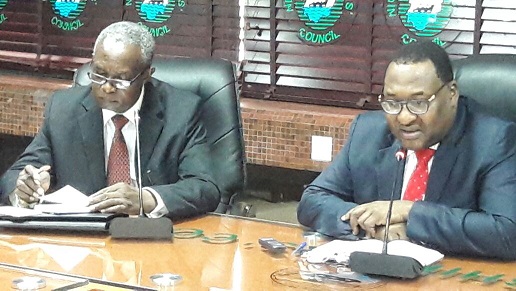“We Have Nothing To Hide”-NCS


Col. Hameed Ali (rtd) Comptroller General, Nigeria Customs Service
Comptroller General of the Nigeria Customs Service, Col. Hameed Ibrahim Ali (rtd) has directed all Customs Area Comptrollers, CACs, to grant Senate Ad Hoc Committee access to warehouses across the country for inspection.
Deputy Comptroller of Customs, DC, Joseph Attah, national Public Relations Officer of Nigeria Customs Service (NCS) had disclosed.
Attah said the CGC gave the directive when the Ad Hoc Committee visited to intimate the customs boss about the commencement of the inspection of customs warehouses across the country.
The NCS spokesman added that Hameed Ali assured the Committee of custom’s cooperation to ensure successful inspection.
He quoted the CGC as saying “customs has nothing to hide: our books are open and Area Comptrollers have been directed to open warehouses for the committee and provide answers to all questions.
“At the end of the day, we are all working for the interest of the nation.
“I was surprise to read on some national dailies that the CGC walked out on the Committee when members visited the headquarters.”
The public relations officer said the Committee members had visited customs warehouses in Karu and FCT Command to see if seized food items were being wasted as alleged by some observers.
Attah said the Service was operating on a presidential directive that seized food items be given to victims of insurgency in the Northeast.
He added that the Service had been distributing the items to Internally Displaced Persons (IDPs) since 2016.
In Attah’s words “we have so far distributed 252,466 bags of rice and over 80,000 Jerry cans of vegetable oil, soap, ladies wears and shoes, among others, since 2016. The process of handing over these food and perishable items to IDPs involved some Senators who followed the National Logistics Committee to present the items to various IDPs’ camps.”
Attah said the Service had also adopted the e-auction rather than the manual process of auctioning.
He explained that since the CGC launched the e-auction in the second quarter of 2017, more than 700 ordinary Nigerians had benefitted from it.










